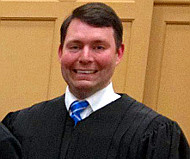2/11/2015
North Carolina Court Admits Illegally Obtained Evidence In License CaseNorth Carolina Court of Appeals allows license suspensions in cases where police obtained evidence by violating the Constitution.

Police may not violate constitutional rights to obtain a drunk driving conviction, but the Department of Motor Vehicles (DMV) can. The North Carolina Court of Appeals came to that conclusion last week in reinstating the driver's license suspension of Myra Lynne Combs.
On January 6, 2013, Mount Airy Police Officer David Grubbs wrongly stopped Combs, who was behind the wheel of a blue SUV. An anonymous caller reported seeing a blue Ford Explorer weaving on Highway 52. Officer Grubs saw Combs, but her driving was just fine. She neither weaved nor committed any traffic violations. Officer Grubbs decided to stop her anyway once she had reached her destination.
Combs smelled of alcohol, and she was unable to pass the standard battery of field sobriety tests. Combs refused to undergo a breath test. Although she was arrested for driving under the influence of alcohol (DUI), the Surry County District Court tossed the criminal case because the officer violated the Constitution in stopping her illegally. The North Carolina Department of Motor Vehicles (DMV), however, was unwilling to let Combs off the hook. It revoked her driver's license based solely on the illicitly obtained evidence. The DMV argued that the exclusionary rule does not apply to a civil proceeding. Combs argued that this was unfair. The trial judge told the DMV it could not base its action on illegal evidence, but the appellate court disagreed.
"Combs's argument poses a fair question: how can law enforcement use evidence that was suppressed because of a Fourth Amendment violation to later revoke her driver's license?" Court of Appeals Judge Richard Dietz asked. "The answer, according to several published decisions of this court, is that the exclusionary rule -- a bedrock principle of criminal law -- does not apply to license revocation proceedings."
Since the three-judge panel accepted the evidence obtained as a result of the traffic stop, it concluded that the DMV had sufficient evidence that Combs refused to submit to a breath test, the penalty for which is license suspension. Combs may have good reason to seek further review of her case, as the appeals court was quoting itself in arriving at its decision.
"Our Supreme Court has not yet addressed this issue, but this court has," Judge Dietz wrote.
A copy of the decision is available in an 80k PDF file at the source link below.


